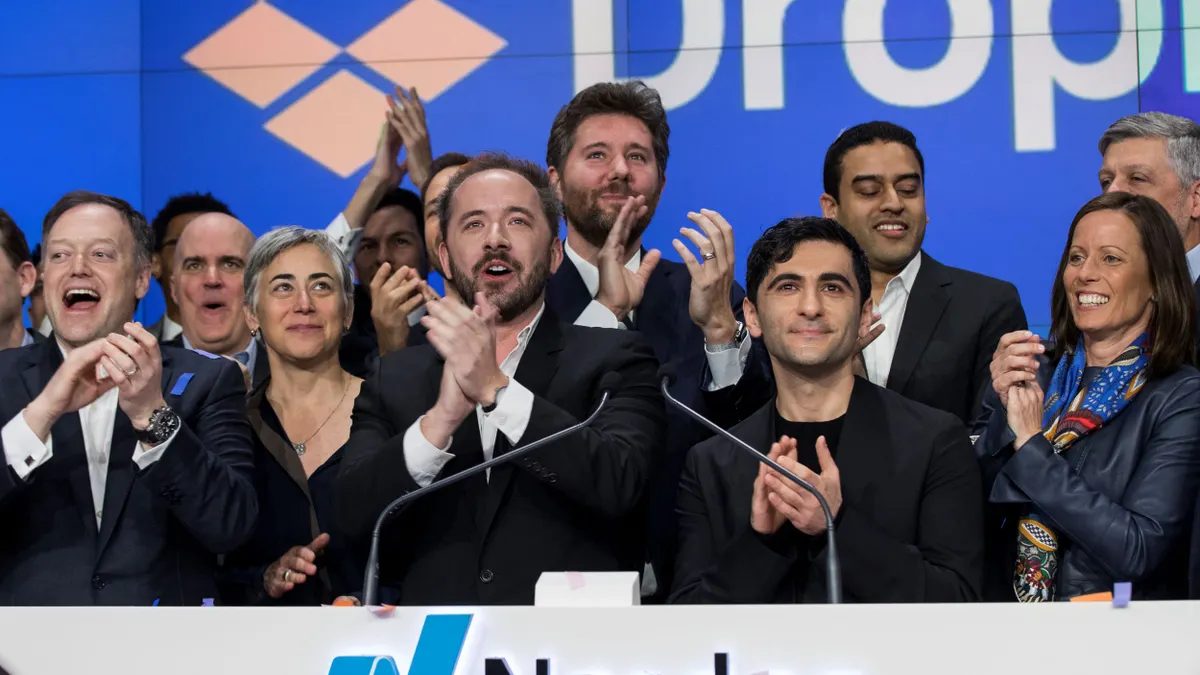The generative AI hype cycle is still going strong, but what’s really exciting about the technology’s advent is that it’s put the AI discussion at the CEO and board level, Katie Stein, chief strategy officer and and global business leader, enterprise services and analytics for global professional services firm Genpact, said.
It’s “really recentered the discussion on, ‘every company should be an AI company in the future: What does that mean?’” she said in an interview.
Answering that question effectively means having a transparent understanding of how introducing the technology will affect all aspects of the business: a space where the company’s CFO, as well as other senior leaders, must play a critical role.
Developing an AI ‘SWAT team’
Genpact is one among many companies which have moved swiftly to incorporate generative AI’s capabilities, announcing a partnership with Microsoft — the backer of ChatGPT creator OpenAI — late last month to enable its business teams to access Microsoft’s OpenAI services. Earlier this month, the New York-based company announced it had integrated generative AI into its own intelligence platform, allowing clients to access the tool to help make operational decisions.
The company is viewing the integration of generative AI as an “offense strategy move,” Stein said, tackling it with a “cross-functional SWAT team” which goes up to Stein as the CSO as well as the company’s CEO, with whom they meet regularly to provide updates.
Genpact also used a series of hackathons to help democratize idea generation surrounding the technology, and is now in the process of reviewing those ideas, figuring out how to potentially scale them as well as determining the value proposition to the client, she said.
“I think this is so early, that companies that are taking it really seriously, are really engaging all the way to the CEO,” she said in an interview. “And then as an executive team, we meet once a week, where we go through where we are in the plan, what our commitments are, what we need to change, because you have to be agile.”
As the financial nexus of the business, CFOs are essential when it comes to creating that agility — the CFO “at the end of the day is sort of the arbitrator that doesn't care whose land it is, what they care about is what the financial metrics are going to be,” Stein said.
Finance chiefs also have the ability to bring together all of the disparate information needed for the business to form a clear picture of how to move forward with upcoming initiatives.
Stein pointed to bringing AI to the order to cash process as an example, which requires senior leadership to have a deep understanding of a host of often siloed information, including what the customer is looking for, how such a move could affect one’s supply chain, and current sales — all data the finance chief can help to aggregate.
“So when you come back to this integrated execution management, I think the CFO becomes this really critical stakeholder driving all of these teams (to) play a team sport, versus playing for their individual optimization,” she said.
Bracing for the AI culture shift
With everyone eager to become a generative AI expert, the nascent technology’s introduction also changes some “fundamental things” regarding not just one’s business strategy but one’s culture, Stein said.
The advent of generative AI means that companies like Genpact can now move into areas they may not have considered previously — such as software engineering or digital marketing — “because it’s a scale game,” she said. That changes when tools like generative AI can take half of a software engineer’s potential workload, she said.
“Certainly we're looking at it that way, which is, how do we aggressively attack spaces that before maybe were a little in our periphery vision?” Stein said.
This is a fundamental shift, forcing leaders to consider not just where to put such technology in their existing processes, but “how does this change what we can offer, how we deliver our services, where we participate in which markets?” Stein said.
The democratization of AI also means that businesses need to prepare for the evolving ways their workforce will utilize the tool as well. Because of the technology’s open source nature, companies now must contend with the majority of their employees using generative AI — both in the workplace and on personal devices — rather than just a handful of their workforce.
Given that shift, Stein also stressed the importance of developing responsible AI at one’s organization, a topic which is becoming a key area of focus for senior leadership. Michael Kelly, partner and management consulting consultant at Big Four firm Ernst & Young, noted CFOs will need to spend some time determining the technology’s “guardrails” in a recent interview with CFO Dive.
“I think responsible AI is a really important topic that boards are talking about, which is not just data privacy and IP privacy, we have to come back and reevaluate all that, but also values and culture,” Stein said. “With all of your employees accessing and using AI, what are your values?”





















